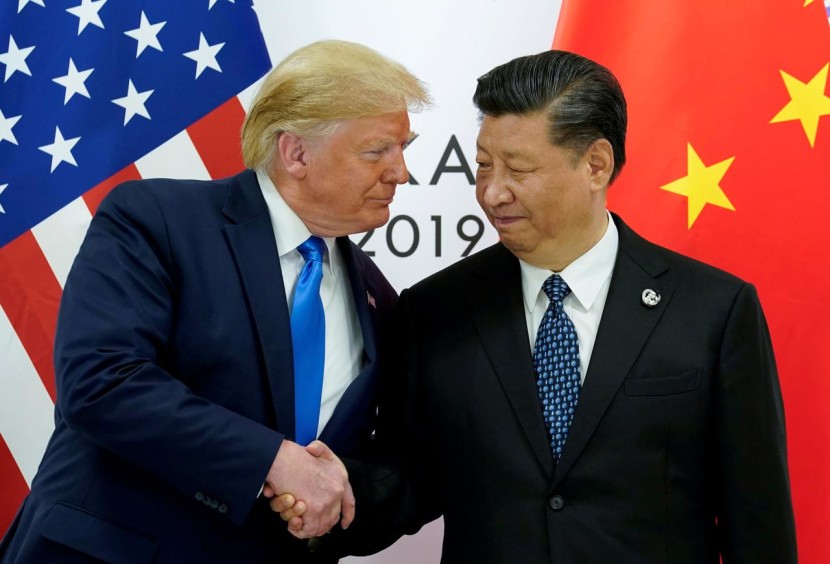
COVID-19 is no longer the "Wuhan virus" after the two world leaders finally met eye to eye in an interest in cooling down the crisis. The United States and China reached a truce to end feud over the coronavirus pandemic.
After a telephone call on March 26 with Chinese Presindent Xi Jinping, who is hardly known for the delicacy of his word choices, President Donald Trump has eliminated his provocative term "Chinese Virus" and held back from criticizing China.
Insisting on saying "Wuhan Virus" before, Secretary of State Mike Pompeo now has been talking of cooperation.
On Tuesday, Pompeo shared with the media that this is a global pandemic and this is the time for every country to work together to resolve the outbreak.
Last month, a Chinese foreign ministry spokesman spread a conspiracy theory that the virus in Wuhan was brought by United States Troops which angered the U.S.
Despite the exchange of allegations of the two nations, China's ambassador to Washington Cui Tiankai gentlemanly struck a highly different tone in an op-ed in The New York Times wherein he spoke of his fondness for Americans as he promised that China would do whatever they can to support the United States.
Morgan Ortagus, U.S. State Department spokeswoman welcomed the Chinese ambassador's remarks but called, civilly, on China to share their virus data and allow freedom of speech as she emphasized that true cooperation requires transparency and real actions, not just rhetoric.
Read also: Donald Trump Says China Will Continue With Trade Deal Despite Ecomonic Dilemma
Not a time to point fingers
As the death toll of COVID-19 in the United States hit more than 12,000 and whatever the faults in China's response, observers call Trumps's blaming of Beijing as a political ploy as he faces criticism for not taking a step ahead over the pandemic.
As the battle against coronavirus continues and the medical supplies in short supply, Trump needs China as they produce half of the imported masks in the States.
Moreover, Director of Asia Studies at the Council on Foreign Relations, Elizabeth Economy, shared that Washington certainly does not want to alienate Beijing to the point that it bans the sale of Medical Equipments to the United States and it also reflects a broader sentiment within much of the United States that this is not the time to play an international blame game because the priority should be on saving American and other lives.
The economy also pointed out that the Trump Administration may also feel that they no longer need to be as upfront for there are other countries who stepped up in criticizing Beijing however she doubted that the sudden change in the tone would improve the relationship, which was already tense even before the global outbreak.
Confronting China multiple times, the Trump administration stood against Chiba on its military buildup, human rights record, as the State Department on Monday criticized Beijing over the sinking of Vietnamese fishing trawler.
But the State Department's Global Engagement Center, which is assigned in tracking foreign propagandas, reported that China state social media already phased out the conspiracy theory blaming the United States.
Related article: U.S. Brace for 'Hardest, Saddest' Week as COVID-19 Deaths Expected to Surge
© 2026 HNGN, All rights reserved. Do not reproduce without permission.








